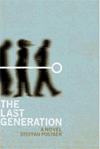
Have you noticed news publishers rapidly escalating their reporting of Tweets by anyone and everyone in the public eye? Be it a C-list celebrity or the President of the United States (the same thing by the way) everyone from CNN to your local online paper feverishly love to tell us about Joe Blow’s random Tweets.
It’s a new level of scrutiny on a very low type of communication. Tweets, especially those without links to something important, are really nothing more than brain farts. Such missives would normally smell for a few seconds then dissipate into the cosmos. Which, for the most part, is what should happen to these bits of unpleasant emissions.
But not anymore. Now a goof’s drunken reflection on current events has become a current event. When twitter blows up (at the drop of a hat) the “news” slavishly tells us about it. Call it Tweet Reporting, kissing cousin of “Fake News.” It’s not unlike telling your BFF at Starbucks, “Did you hear what so and so said the other night?” Titillating in the moment but hardly worth documenting.
In the age of social media it is completely understandable but it’s also ridiculous. Obviously, the lesson here is that folks, especially prominent ones, should be more careful before spewing their opinions into cyberspace. But Twitter, Snapchat and the rest are mostly “in the moment” phenomenon and people tend not to be at their best in the moment. Hence, the adage, count to ten before reacting to a trigger. Be it anger, fear, lust or countless other base emotions, we are always better off showing restraint. Feelings aren’t facts.
Alas, social media isn’t built for contemplation. Today’s “truths” are a narrative based on first reactions, which seldom are accurate. But once a dumbass Tweet is picked up by the media it becomes a fact. This creates a domino effect of yet more facts aka hasty reactions. And the world spins out of control. @twitter #whogivesashit
For content that matters, hit me up: https://steffanwork.wordpress.com/
This is news? “Clickbait” journalism in the digital-social age.
September 6, 2016
While reading the “newspaper” online I came across a couple stories that captured my attention. I clicked on them both not because they were newsworthy (they weren’t) but because they appealed to my socially & digitally trained brain. The same brain that grew up reading long form magazine pieces in The New Yorker and Field & Stream; not to mention spending hours slowly devouring the Sunday paper, digesting sections like a python moving rodents down its throat.
That was then.
These stories are classic examples of the sort of content we feed on now. Both are fairly meaningless by old-school journalism definitions. Nobody died or got hurt. Nothing really is at stake.
The story about vandals knocking over a sandstone goads us into clicking its link, pushing our buttons to judge and to vilify. In this way it is like those “news” stories about drunken beachgoers tormenting a baby dolphin. We have to see these cretins and pillory them. Seeing for ourselves is made possible by amateur video or photography.
The other story functions in the same way but by pushing completely different buttons. The author beseeches us to try and find the “mystery couple” from this “Instagram-worthy…magical photograph.” The picture is of a bride and groom posing on a pretty spot in Yosemite. They are not famous. The photographer is not important. The location is unquestionably on infinite tourist-y photo albums. The chance discovery and the chance to discover are what makes this story click-bait.
Not long ago neither piece would be considered news. Now they probably get more clicks aka readers aka viewers than headlines about bombs falling in Syria.
ESPN reporter, Britt McHenry has already been shamed for rude tirade. Firing her goes too far.
April 19, 2015
Last week, ESPN reporter Britt McHenry was caught being very rude to someone working the counter at a car towing facility, where presumably she had gone to retrieve her vehicle and pay the fine. Her diatribe was not pretty. And neither was she in that moment.
This widely seen video prompted another reporter, Rex Huppke (Chicago Tribune) to write that ESPN should immediately fire the reporter. his story is here: http://www.chicagotribune.com/news/opinion/huppke/chi-britt-mchenry-espn-20150417-story.html
I don’t think so. Britt committed no crime and was not at work, let alone on the air, at the time. Last I checked going off on a rant was not against the law. It’s not nice. But then neither is releasing a video depicting it. In my opinion both acts are forms of shaming, wouldn’t you agree?
Therefore, again my opinion, they cancel each other out. This story should be over. But Mr. Huppke vehemently argues that there is “too much meanness in the world” to tolerate such behavior.
Are you without sin, Mr. Huppke, to cast such a heavy stone? Have you never gone off at the DMV or flipped someone the bird for cutting you off on the highway? In your years on this planet you’ve never had a tantrum at someone’s expense? Called someone a dipshit? I sure as hell have. But unlike Britt McHenry you and I were not caught. Yet.
I’m no Christian but I do believe that Christ’s judgment over those who were stoning a woman for bad behavior to be one of the best lessons from the scripture.
“He who is without sin among you, let him be the first to throw a stone at her.”
Yes, the world is a mean place. It has been since the time of Christ. However, punishing what you deem meanness is also meanness and a very bad road to go down. If saying something stupid were a crime we would all be fired or worse. How often have we seen finger pointing lead to gun pointing? I look at radical Islam and see teachers being harmed for educating young women. I see Putin jailing countless people in Russia for disagreeing with his dogmatic rule. This sort of tyranny often starts with allowing certain people to punish certain other people for merely opening their mouths. Power and the fear of power is deeper rot than rudeness.
From his pulpit Rex Huppke wants to take down a woman for berating another woman. But you are not God, Mr. Huppke. And I dare say you are not without sin. You cross a line when you call for this lady’s exile.
If this argument is too lofty for a newspaperman in Chicago, here’s one you and every journalist can and must relate to: the right to free speech.
The stupification of news media: a virus of breathless hyperbole, meaningless lists and tawdry content.
November 7, 2014
All the news that’s fit to share…
Have you noticed how online journalism and media purveyors have increasingly tarted up and/or dumbed down their content? Things have gotten way more visual, mimicking the look of Instagram and Pinterest. Echoing Buzzfeed and other pseudo journalism sites, we see more and more lists of dubious nature populating web pages: Top ten this. Worst 20 that. Native advertising and news stories are now slurry. No secret why. Editors want consumers. Publishers want advertisers. Both need more and meaningful clicks to survive.
Oh, and you like this shit. (Not me. I’m impervious to salacious come ons and all those sweet, sweet lists.)
In one respect, this is nothing new. Sensationalism has permeated journalism since it began. Whether it’s creepy crimes or naked ladies or both, newspapers have always flirted with the devil. Boobs sell papers. “If it bleeds it leads.”
Yet, what’s different here -and more insidious, in my opinion- is the meshing of bullshit with the news. An obscenity-laden video featuring ghetto trash fighting in McDonald’s is presented as a news story. The “ten outfits no woman over 30 should ever own” is displayed in the same space as an article about foreign policy. Throwback Thursdays. Monday Mug Shots. Fail videos. It’s stupid content just for the hell of it. Gone are the obvious markers for “advertisement” or “paid for by.” So, why would any reader-obsessed editor put this stuff on a separate entertainment-only page? You don’t hide the chum, fool. Put dat shit where people can see it. Stink up dem waters. We. Need. Clicks.
I get it. I really do. Still, it’s sad when journalists start putting inappropriate hyperbole in their copy. Suddenly, everything is “fascinating” or “terrifying” or “hilarious.” Aren’t we -the reader- supposed to be the judge of that?
The immense and growing popularity of Buzz Feed, Reddit, Devoured, Huff Post and countless other content buffets make it impossible for struggling news sites and online magazines to ignore, let alone exist.
Oh, and we like this shit.








 The Happy Soul Industry
The Happy Soul Industry The Last Generation
The Last Generation